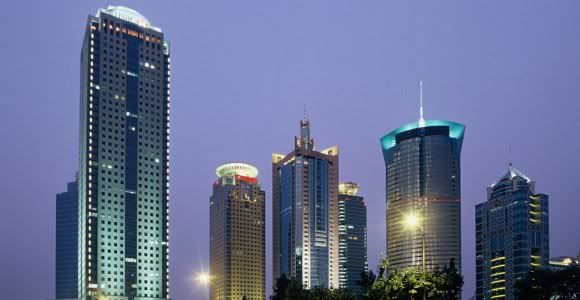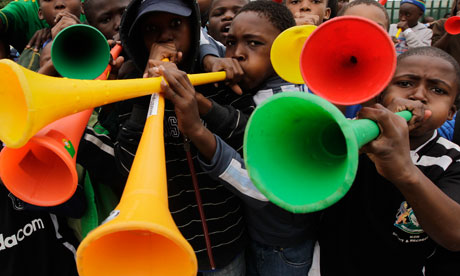One month, 64 games and 145 goals later, the world's biggest event is over. Dry those eyes and pack away those vuvuzelas because you have to wait another 4 years until the next one. But what a World Cup it has been. I think this tournament will be one that will be remembered for years, for a variety of reasons - footballing and non-footballing reasons.
But I think as the sun goes down on this World Cup, South Africa can be duly proud of what they have achieved as host and as a country. The hosting of this tournament for not just South Africa, but the entire continent of Africa has been a marketing and rebranding coup. Two years ago, FIFA President Sepp Blatter said
And celebrate we all did. Even though popularised by a Colombian singer, the strains of "Waka Waka" and its tag line "This Time for Africa", continue to filter through the airwaves, leaving it as probably one of the most popular tournament anthems ever.The world has looked to South Africa over the past month for great football, but got more than they bargained for in the artistry, passion, energy and dare I say, unity of its people.
Whether the powers that be will leap on the momentum which this World Cup has generated and leverage all the positives into effecting socio-economic change is another story, but well done South Africa.
And without a doubt, this tournament's immense public appeal and attraction was heavily invested in the fact that we had greater means to communicate, participate and enjoy the tournament's various facets. World Cup 2010 was supposed to be the social media World Cup and boy was it ever. Information, debates, opinions, replays - all available at the click of a button, whether it be on Twitter, Facebook, Youtube, the obsessed and the curious all found a way to be part of this global phenomenon via this global phenomenon. Sponsors and pundits alike milked it for all it was worth, tapping into the enormous audience primed to receive messages.
Twitter reported that the World Cup or #Worldcup resulted in a record 3,283 tweets per second as opposed to the regular average of 750 per second. The fail whale was almost as recognisable as Paul the Octopus, because of the barrage of tweets around the tournament. Social media has truly revolutionised the way we love the game, and the way the host country was marketed to the millions who could not make it there to see the games live.
At the end of it all, though Spain were crowned the best team in the world, the real winners were South Africa and social media, and all the people who joined the revolution to make this one of the best tournaments the world has ever seen. Brazil 2014 has some rather big shoes to fill, but I think they can do it. In 4 years, this phenomenon may be bigger than any of us can ever have imagined.
Runners up: Paul and the vuvuzelas.
But I think as the sun goes down on this World Cup, South Africa can be duly proud of what they have achieved as host and as a country. The hosting of this tournament for not just South Africa, but the entire continent of Africa has been a marketing and rebranding coup. Two years ago, FIFA President Sepp Blatter said
“People don’t want to trust Africa. That is wrong. Africa has given so much not only to football but to the whole world. Someday, something should come back. So let’s have this World Cup. Let’s celebrate Africa. Why not?”
And celebrate we all did. Even though popularised by a Colombian singer, the strains of "Waka Waka" and its tag line "This Time for Africa", continue to filter through the airwaves, leaving it as probably one of the most popular tournament anthems ever.The world has looked to South Africa over the past month for great football, but got more than they bargained for in the artistry, passion, energy and dare I say, unity of its people.
This game allowed Africa to showcase its beauty and the remnants of Apartheid regime, to the outside world, which seems to have no idea how bad things were and that there is a better side of Africa(beside tribal wars and starvation) which international media—for its own convenience ---tends not to focus on. - Ghanaweb
Whether the powers that be will leap on the momentum which this World Cup has generated and leverage all the positives into effecting socio-economic change is another story, but well done South Africa.
And without a doubt, this tournament's immense public appeal and attraction was heavily invested in the fact that we had greater means to communicate, participate and enjoy the tournament's various facets. World Cup 2010 was supposed to be the social media World Cup and boy was it ever. Information, debates, opinions, replays - all available at the click of a button, whether it be on Twitter, Facebook, Youtube, the obsessed and the curious all found a way to be part of this global phenomenon via this global phenomenon. Sponsors and pundits alike milked it for all it was worth, tapping into the enormous audience primed to receive messages.
Twitter reported that the World Cup or #Worldcup resulted in a record 3,283 tweets per second as opposed to the regular average of 750 per second. The fail whale was almost as recognisable as Paul the Octopus, because of the barrage of tweets around the tournament. Social media has truly revolutionised the way we love the game, and the way the host country was marketed to the millions who could not make it there to see the games live.
At the end of it all, though Spain were crowned the best team in the world, the real winners were South Africa and social media, and all the people who joined the revolution to make this one of the best tournaments the world has ever seen. Brazil 2014 has some rather big shoes to fill, but I think they can do it. In 4 years, this phenomenon may be bigger than any of us can ever have imagined.
Runners up: Paul and the vuvuzelas.



































